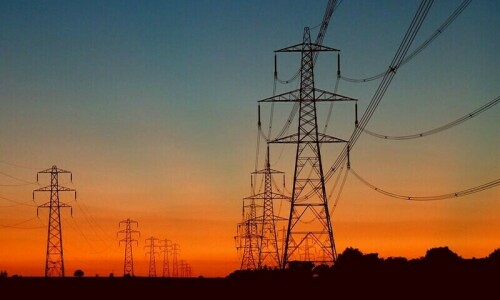LIMA: China’s slowdown and tumbling commodity prices will push global economic growth this year to the lowest level since the recession year 2009, the International Monetary Fund predicted Tuesday.
In a report Tuesday in advance of the IMF-World Bank annual meetings here this week, the fund says the world economy will grow 3.1 per cent this year, down from a July forecast of 3.3pc and from 3.4pc growth last year.
“The risks seem more tilted to the downside than they did just a few months ago,” IMF chief economist Maurice Obstfeld told reporters. Still, Obstfeld downplayed the risk of a global recession.
The US Fed last month cited economic weakness around the world when it decided to postpone a long-anticipated increase in short-term US interest rates, which it’s kept near zero since December 2008. Obstfeld said any rate increase in the US would be good news, reflecting the Fed’s vote of confidence in the American economy, the world’s largest.
The fund predicts the United States will grow 2.6pc this year, up from a July forecast of 2.5pc and from 2.4pc growth last year.
Emerging market economies will likely grow 4pc, which would mark the fifth straight annual drop. They have been hurt by an economic slowdown in China, which has reduced demand for emerging market raw materials and pushed down prices of commodities such as copper and oil. “What happens in China has repercussions for the entire world economy,” Obstfeld said.
Among those hardest hit by the commodities bust: The Brazilian economy, forecast to contract by 3pc this year; and Russia, forecast to shrink 3.8pc because of lower oil prices and economic sanctions imposed by the West as punishment for Russian aggression in Ukraine.
Collapsing energy prices are also hurting Canada. The IMF downgraded its forecast for the Canadian economy by half a percentage point to 1pc this year.
The Chinese economy has been slowing for four straight years, partly because the government is engineering a transition away from dependence on exports and often-inefficient investments. Instead, they are moving toward slower, more sustainable growth based on consumer spending.
Published in Dawn, October 7th, 2015
On a mobile phone? Get the Dawn Mobile App: Apple Store | Google Play















































